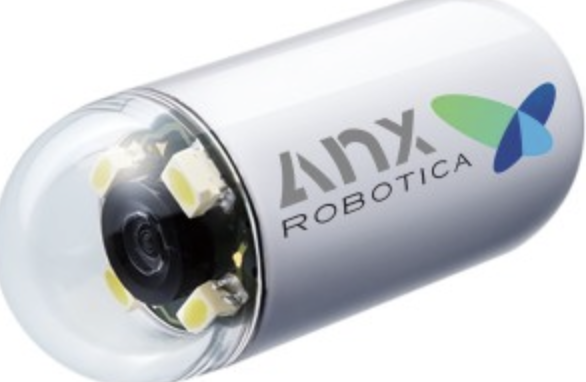Two joysticks control the “NaviCam” from George Washington University and AnX Robotica from the outside.
Researchers led by Andrew Meltzer of George Washington University (https://www.gwu.edu/) have developed “NaviCam”, a swallowable “camera pill” to replace previous endoscopic procedures for inspecting the stomach and colon. “A traditional endoscopy is an invasive procedure, not to mention costly due to the need for anaesthesia and the patient being out of work for at least a day,” says Meltzer. He came up with the idea of the navigable camera after treating patients who came to the emergency room with life-threatening stomach problems and could not be endoscoped.
Previously only stomach inspected
The new high-tech capsule is magnetisable, so it can be controlled from the outside by joystick. The researchers tested the device on 40 adult patients who, given their symptoms, were actually ripe for an endoscopy. They had stomach pain, bloating, heartburn, nausea and/or vomiting, anaemia or weight loss. They were asked not to eat anything after 8pm the night before the procedure. On the day of the procedure, the patient drank one litre of water with simethicone, an antifoaming agent.
About ten minutes after the last sip, the subject took the capsule, put on a waistcoat that receives image data from the capsule, and lay down on a table above which was a magnet controlled by two joysticks. One is responsible for moving the capsule in the X-Y-Z axes, the other for rotation around the horizontal and vertical axes. The NaviCam, developed by AnX Robotica (https://www.anxrobotics.com), provides a 160-degree field of view and continuously delivers video with a resolution of 640 x 480 pixels per inch at a frame rate of 0.5 to six frames per second.
Artificial intelligence on board
According to the researchers, in tests the magnetically controlled capsule was able to visualise all anatomical areas of the stomach and reliably record video and still images of bleeding, inflammation or malignant lesions. Now the scientists are developing software that uses artificial intelligence to automatically steer the capsule through the stomach and record abnormalities. It is excreted again naturally. In the future, it may also be able to transmit images from the intestinal tract.





